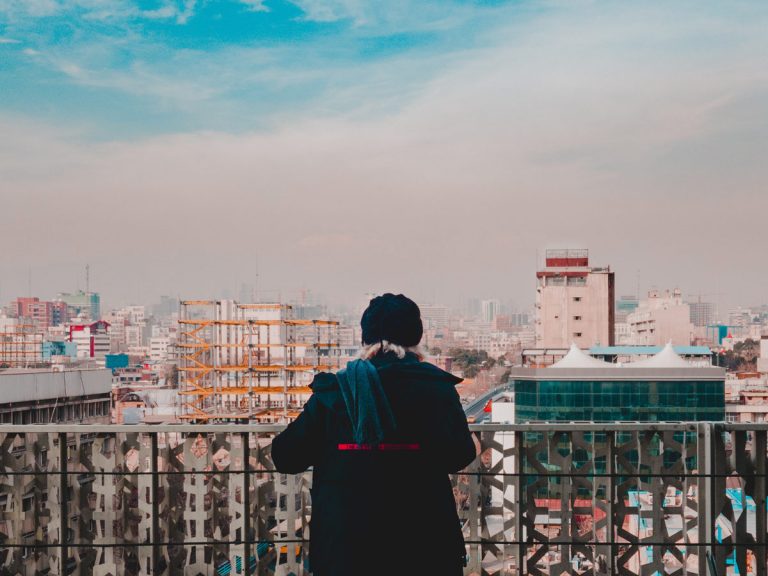TikTok users are using secret hashtags to discuss self harm on the platform

Speaking to Huck, 19-year-old Becca from Essex, who is currently in a psychiatric ward told the publication she uses TikTok regularly to speak up about her experience with self-harm, “It’s really fun and makes the time go by a little bit quicker.” As it turns out, with more than 13,000 followers to her name, Becca is not the only gen Zer using the video-sharing platform to discuss self-harm.
Only, one thing doesn’t seem quite right—none of Becca’s videos are tagged #selfharm or #selfharmrecovery. That’s because if you were to search either of these hashtags on TikTok, no videos would come up. Instead, you’ll find a support resources page and the Samaritans number.
Like many other social media platforms before, TikTok felt like censoring the hashtag #selfharm would help reduce the spread of self-harm and suicide content online. But for tech-savvy gen Zers like Becca, banning a handful of hashtags didn’t do much; instead, TikTokers created ‘secret’ self-harm hashtags to talk candidly about the triggering topic.
“I think it’s a really good coping mechanism for me, because it allows me to be funny and lighthearted, and it also allows me to use my voice to hopefully help other people,” she told Huck, and while her initiative definitely sounds like a healthy way to tackle taboos surrounding self-harm, unmoderated hashtags like the ones used by Becca also represent worrying grey areas where any content is free to circulate.
17-year-old Aoibheann, known as @barcodebabyx on TikTok, is another user who posts under these secret hashtags. Just like Becca, she enjoys using dark humour to talk openly about self-harm. “I find it helps, because people who’ve gone through the same thing relate,” she told Huck. Her honest, upfront approach clearly resonates with a lot of people, as she currently boasts an impressive 22,900 followers on the app.
While it’s clear that some of the content shared under these secret hashtags bear a positive and educative message for other self-harm victims, Aoibheann herself admits to being triggered by specific content found under them. “It’s not really their fault,” she says, speaking of the creators behind the videos which caused her distress. Triggers are complicated, and users sometimes unknowingly upload content which can cause others to spiral: “Like personally, if I see that someone has worse scars than me, I’m like, ‘Oh, I’m not that bad, theirs is worse.’ But that’s not their fault.”
In a way, TikTok has inadvertently made it easier for people to stumble across triggering videos. “I have been triggered by some content. If there’s like, obvious open wounds and they haven’t used appropriate warnings, it can catch you off-guard,” Becca added.
Censoring ‘triggering’ content remains one of the biggest problems social media platforms face as it isn’t as straightforward as making the platform free of graphic imagery (although that certainly helps). Recovering self-harmers, like any other group, are not a homogenous mass to which a one-size-fits-all rule can be applied. How do you moderate something where responses differ widely from person to person?
According to Mental Health First Aid England, 25.7 per cent of women and 9.7 per cent of men aged 16 to 24 report having self-harmed at some point in their life. Research published in February 2021 found that the rate of self-harm among young children in the UK has doubled over the last six years, with an average of 10 children aged between 9 to 12 being admitted to hospital each week after intentionally injuring themselves.
That’s why it is crucial that TikTok’s content moderation practices effectively separate helpful from harmful self-harm related posts. Similar to what Instagram launched in 2019, professionals recommend that TikTok tries to do the same by introducing ‘Sensitivity Screens’ to the app to warn users when they’re about to see a post about self-harm.
However, this problem doesn’t start with social media—evidently, there wouldn’t be so many triggering videos if fewer young people were struggling in the first place. As Huck stated, we’re currently in the middle of a youth mental health crisis, there’s no denying it. In the UK, child and adolescent mental health services (CAMHS) have been particularly neglected, accounting for under one per cent of total NHS spending.
Meanwhile, people aged 10 to 24 years in England and Wales have seen one of the greatest increases in suicide rates over the past decade. So, of course, TikTok should ensure robust content moderation to prevent users from seeing distressing content, but the same amount of energy, attention, and time should also be given towards demanding that the government’s policies on child and adolescent mental health services are robust too.





